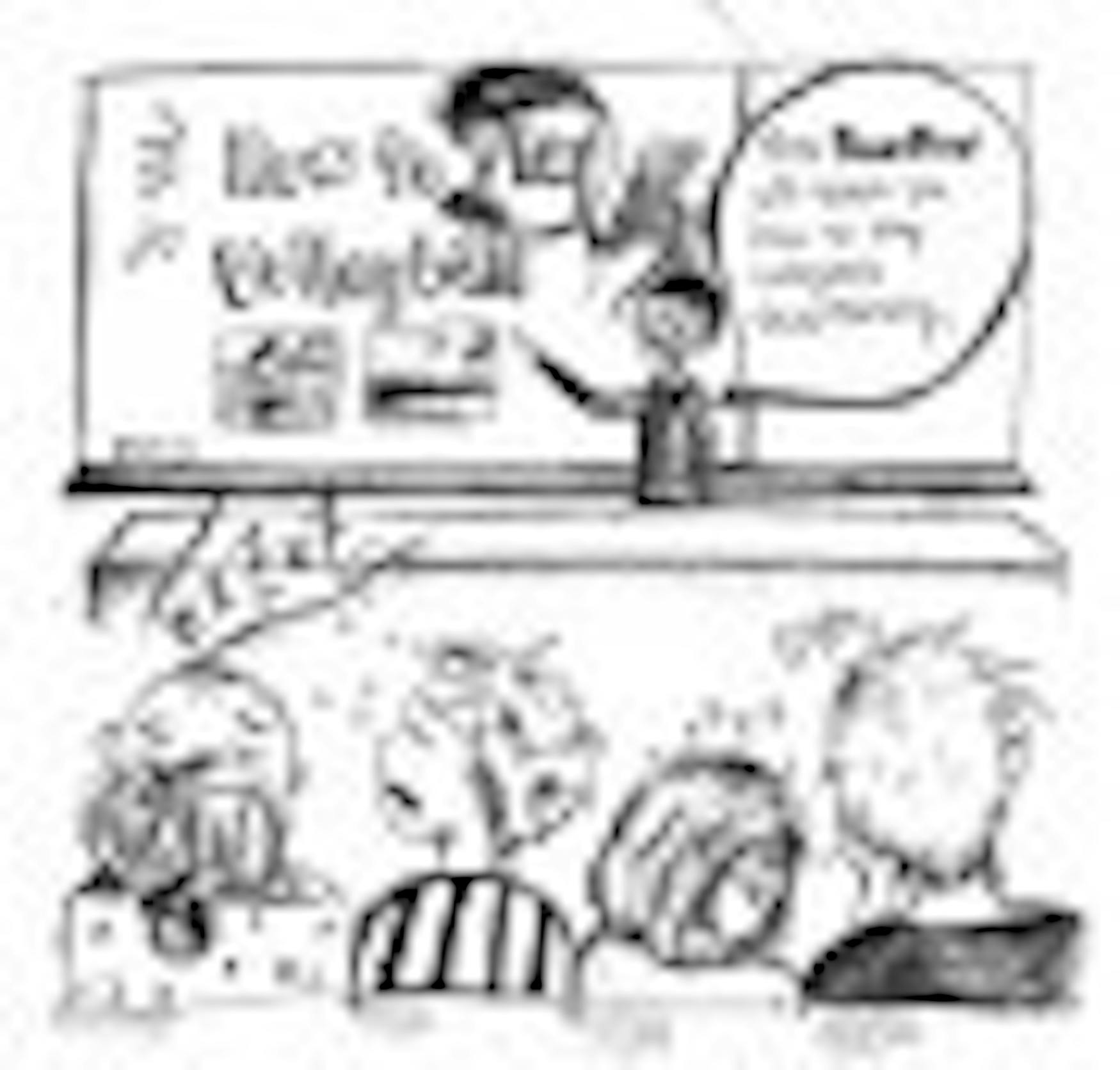Professors: Be cautious with PowerPoint
Of all my 16 years of schooling, few memories stand out in my mind as definitively as a particular moment from my third-grade gifted science class titled "Tech World." Dr. Knight, my favorite teacher (and grade- school role model) was teaching our small class of nine students about ESP by conducting an "ESP test" in which we needed to repeatedly guess three numbers previously written by the student sitting behind us (an activity in which by mere chance-or perhaps "special ability"-I performed quite well). It spoke volumes about Dr. Knight's passion for his students' enthusiasm and interest in science that, upon my arrival back home, I found my mom sitting on the porch speaking to Dr. Knight on the phone. He had called to inform her that I "had ESP."
I esteem Brandeis as much as I esteemed Dr. Knight's science class in elementary school; however, in college, I have found myself far less enchanted by my professors' lectures. Since my interest in the courses I am taking has not lessened, I attribute this fact to the overuse and misuse of PowerPoint as a tool for teaching.
PowerPoint presentations are essentially the antithesis of experiential learning. Though the presentations can certainly serve as very thorough study guides come exams, they cannot capture a professor's enthusiasm for his or her area of interest as fully as an off-the-cuff lecture. As a result, PowerPoint sucks the life out of a lecture and course. The magic disappears when a course is taught by PowerPoint instead of by experience. At a school filled with extremely accomplished, experienced and brilliant professors, the value of their lectures (and the value of attending a school such as Brandeis) comes from the anecdotes elaborating upon their many experiences. As a matter of fact, I would rather a professor simply tell me stories about what he has seen, where he has been and what he has done for 90 percent of every lecture, rarely mention the textbook information and give me an outline of terms to guide my studying for the exam. This format is the true (and apparently secret) recipe for inspiration.
If PowerPoint presentations have such negative impacts on my appreciation of a subject, why do all of my professors insist on investing time into making them for each lecture?
Perhaps they believe that our generation expects technology to be utilized in every aspect of our lives-though it'd be quite sad if professors really do believe that our affinity for technology is stronger than our affinity for conversation.
I understand that PowerPoint is an incredibly useful tool for professors who present their research to colleagues, but their colleagues already have a vested interest in the presentation and will likely find the presentation exciting.
Presenting the same PowerPoint presentation to a class of college biology students at 10 a.m. will have a very different effect, likely lulling the students back to sleep. Meanwhile, these slumbering students will fail to be exposed to the lush parts of what is literally the "science of life."
Further, there is a phenomenon that takes place about a month after the start of classes: Students frustrated by routinely lackluster PowerPoint presentations realize that their attendance at lectures will probably benefit them less than hitting the snooze buttons on their alarms to sneak in an extra hour of sleep. Upon this realization, students stop going to class altogether-definitely not the professor's intention. If students are capable of getting an A in a course simply by reading their textbooks, it must follow that a large part of the professor's job is to engage and entertain their students.
A month into my third college semester, I have only had one professor conduct engaging lectures by PowerPoint.
Prof. Robert Sekuler (PSYC) placed the final touches on each presentation 5 minutes before class, adding relevant newspaper articles published earlier that morning. He paced back and forth while making eye contact with his students. Further, he divulged stories from his own wealth of experience in neuroscience in a nearly haphazard style, which sparked students' fascination with the material.
If all professors put such effort into their lectures, there would be no detrimental effects of using PowerPoint. Nonetheless, it is in the direct nature of technology to dilute the human aspect of processes. However, let me give professors this small insight into the life of a college student: Contrary to popular belief, none of my friends, nor myself, have ever had a fascinating, exciting or motivational conversation with our computers. We still believe in and crave human dialogue, perhaps even more than we do technology. Please teach us and tell us your stories.



Please note All comments are eligible for publication in The Justice.